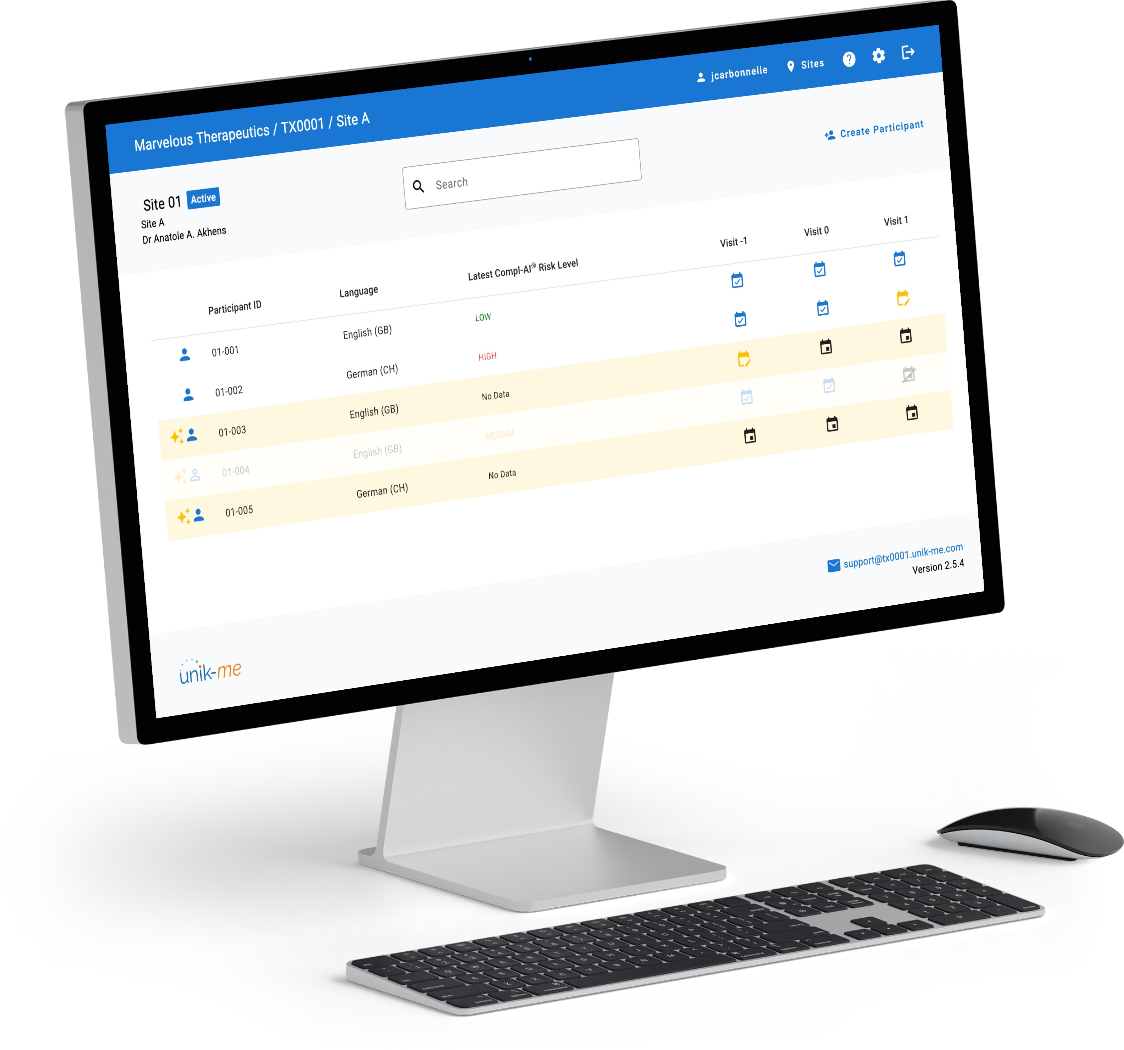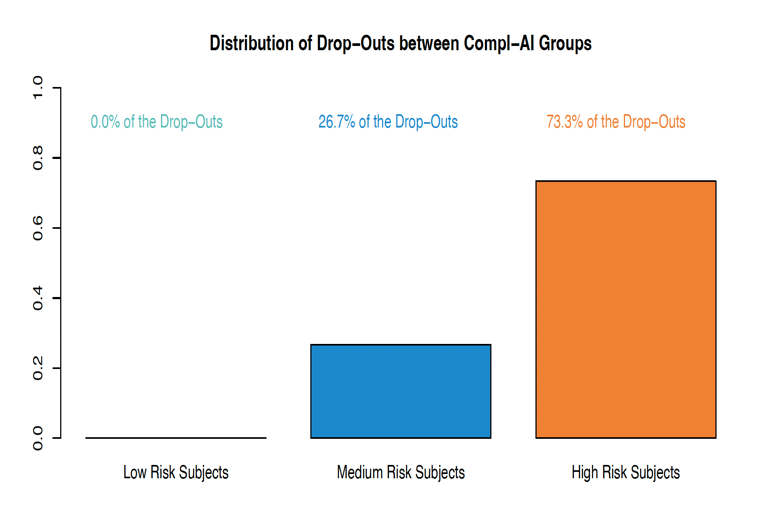Fewer dropouts. Smarter adherence. Better outcomes.
Predict and prevent dropouts and nonadherence, before it disrupts your study or care.
Compl-AI combines behavioral science and machine learning to identify patients at risk of nonadherence or dropout. By evaluating patient profiles, beliefs, and engagement factors at baseline, it enables early, targeted intervention—improving retention and outcomes across clinical trials and real-world healthcare.

Nonadherence & dropout cost time, money & outcomes
Whether in clinical trials or behavioral health programs, early detection of dropout and nonadherence or no-show risk factors is key. Compl-AI generates a risk score for every patient, empowering your team to:
- Predict risk
- Provide personalized support
- Improve retention
Predicting Accurately Patient Dropouts: Compl-AI impact in Type 1 Diabetes Studies
In early-stage Type 1 Diabetes(T1D) clinical trials, patient dropout and nonadherence increase study costs and compromise data quality. This analysis assessed Compl-AI’s ability to predict dropout risk at baseline using behavioral and psychological factors.
- More than 2/3 of patients who dropped out were identified as high-risk at screening.
- The model demonstrated robust predictive performance, validated by standard metrics.
- The model attained high sensitivity while maintaining solid specificity.

How Compl-AI Works
Through an intuitive, easy-to-use interface, study sponsors are empowered to help patients better manage medications and procedures, reducing the risk of nonadherence and dropout. Here's how the setup process works.
STEP 1
Assess patient traits & characteristics
Patients complete the MPsQ post-screening and before the first dose of either an active agent or placebo. This validated tool measures key engagement predictors—including personality traits, expectations, beliefs about medicine, and psychosocial context.
STEP 2
Apply Compl-AI machine learning-powered platform
Compl-AI machine learning-based algorithms generate a personalized risk score for each patient, accessible to sponsors, CROs, and should we add a sentence for real world?
STEP 3
Use individualized risk scores for nonadherence & dropout
Empower your team with precise, individualized risk scores to predict nonadherence and dropout. These scores enable proactive, tailored engagement and support strategies, ensuring retention of high-risk patients, minimizing study disruptions and timeline shifts, and enhancing adherence to treatment protocols for superior patient outcomes.
Compl-AI’s Potential for Precision Healthcare
Compl-AI redefines healthcare by integrating clinically validated psychological insights into existing patient data, empowering hospitals, researchers, and policymakers to enhance treatment engagement, reduce readmissions, and improve outcomes in critical areas. By addressing the critical blind spot of patient psychology—unseen in traditional chart data and social determinants of health—Compl-AI delivers predictive, actionable insights that align with institutional goals, enabling a more human-centered approach to precision medicine.
Resources about clinical trial patient engagement, nonadherence & dropout
Patient Engagement in Clinical Trials: Why It Matters & How to Improve It
Recruiting patients for clinical trials is only half of the battle. Retaining those eligible patients over the course of the study to ensure reliable data is another common industry hurdle. In this blog, we explore patient engagement in clinical trials, including steps to improve it.
Predicting drop-out in early-stage Type 1 Diabetes clinical trials to improve retention through Personalized Engagement Strategies
Our goal was to develop a machine learning-based model to predict drop-out likelihood in early-stage Type 1 Diabetes (T1D) clinical trials, through an evaluation of patient profile and behaviors.
Predicting Patient Drop-Out in Clinical Trials: A First Step Toward Personalized Engagement Strategies
A predictive tool identifying patients likely to drop out could enhance clinical trial management through targeted and personalized engagement strategies. We aimed to develop such a tool using predictive modeling on data from two studies on schizophrenia and dry eye.
Understand patient differences in your next clinical trial
Increase your trial’s success rates and bring new therapies to patients faster.
Tell us about your clinical trial below, and our team will be in touch.
"*" indicates required fields
